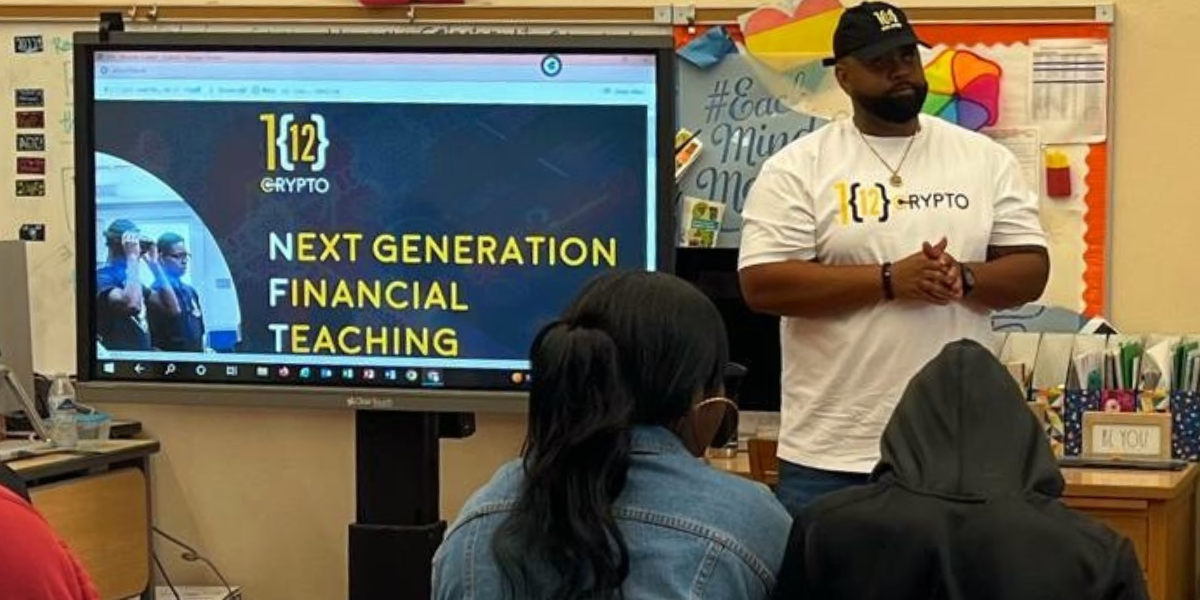
According to the 2022 Survey of the States report from the Council for Economic Education, only 25 states require a course in economics to graduate. As economic uncertainty continues to grip young adults who feel ill-prepared for financial responsibility when they leave high school, legislation has already been proposed to lift the requirement for economic education in some states.
Amen Rahh, the founder of the EduTech startup K12 Crypto said enough is enough. Known as the Revolutionary Principal for founding the successful University Pathways Public Service Academy in South Central Los Angeles, the passionate advocate of financial literacy decided that instead of waiting for the world to catch up with the needs of his students, he would empower them to take control of their own financial futures.
As a result, Rahh partnered with his friend BJ Abron to establish K12 Crypto to revolutionize the education system for good. K12 Crypto utilizes a "learn to earn" method for its multifaceted crypto platform that provides students from kindergarten through 12th grade with a locked wallet. The two academically minded partners designed the program to provide a roadmap to success and learning opportunities.
K12 Crypto incentivizes students throughout their academic careers to elevate how they show up and respond to their educational environment. Successful completion of established metrics enables them to acquire cryptocurrency tokens. These tokens are stored in highly secured digital wallets unique to each student.
Upon graduation, students receive access to their unlocked wallets and accumulated wealth. As part of the curriculum, students also take comprehensive financial literacy classes throughout their academic careers. This way, they are motivated to learn the fundamentals of economics while gaining important insights into business and finance.
"Learning to Earn" is not a new concept. Rahh points to Dr. Roland Fryer, a Harvard economics professor who studied the effects of cash incentives on student grades. While Fryer's program Capital Gains worked on a cash-based system, Rahh points out that K12 Crypto leverages blockchain and smart contracts with a similar end goal.
Regarding financial literacy, Rahh says, "Crypto can solve the problems of the student loan debt crisis in America, and these initiatives are helping students realize how they can fund their future through blockchain."
According to a CNET article on student loan debt,
On average, tuition costs have tended to increase around 8% per year, according to Finaid, which means the total cost of a college education doubles every nine years. The dramatic rise in debt from higher education costs has a profound collective impact on young adults today, both economically and socially, creating a widening wealth gap when compared to previous generations.
As a leading voice in Web3 education, Rahh believes launching programs like K12 Crypto in schools can potentially fund kids' futures.
Schools from LA to New York have signed up to participate in this groundbreaking learning platform. Rahh, his business partner Abron and the K12 Crypto team are preparing for the Next Generation Financial Teaching Summit in March 2023, where students can come together and learn about blockchain technology, Bitcoin, and non-fungible tokens. The summit will be held in South Central Los Angeles.
To learn how you can be a part of this remarkable legacy of learning, visit K12Crypto.com.
* This is a contributed article and this content does not necessarily represent the views of techtimes.com








